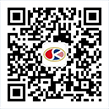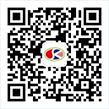【 Case summary 】
On March 28, 2013, Resmed filed a complaint with the U.S. International Trade Commission against AB and its distributor, California's Driver Medical Design & Manufacturing, for illegally importing and selling "certain systems and components for the treatment of sleep disordered breathing. sleep-disordered breathing treatment systems and components thereof) and other products infringed Resmed's seven patents related to humidity regulators and breathing masks. At the same time, ResMed filed a parallel lawsuit in the U.S. District Court for the Middle District of California against Arbo and its distributor in the United States, California Drive Medical Design and Manufacturing Company, for infringement of the same patent. Reiss went to the court to claim that the related electronic device products produced by it have been widely used in the international market for obstructive respiratory symptoms and are well-known in the international market; The distributor of Arbor, California Drive Medical Design and Manufacturing Company, imported Arbor products (model number: Apex WiZARD 210, WiZARD 220) and rebranded the products as "Freedom210" and "Freedom220" under the license of Arbor in the United States. Resmed presented evidence to the court to prove the fact that Arbel imported and sold the infringing goods in the United States to the California Drive Medical Design and Manufacturing Company. Resmed asked the U.S. International Trade Commission to grant a "permanent net exclusion order" and a "permanent cease and desist Order. In order to prevent ResMed from further infringement by Arbo and its seller, Drive Medical Design and Manufacturing of California.
【 Case Revelation 】
This case is a typical US Section 337 litigation case on medical devices, through studying this case can help enterprises to further understand Section 337 litigation, and this case also involves manufacturing exporters in the local agent sellers. Although the United States International Trade Commission launched an investigation against Arbo at Resmel's request and issued a ruling prohibiting Arbo from importing and selling infringing products, ARbo changed its patent strategy to counter the litigation strategy by agreeing to terminate the Section 337 investigation of the United States International Trade Commission, so as to further use the patent avoidance design for litigation offense and defense. The invalidation of Resmed's patents led to the U.S. International Trade Commission finding in July 2014 that the two patent avoidance designs claimed by Abbott were valid, prompting the two parties to reach a global settlement agreement in September 2014. The litigation strategy adopted by Arbo in this case is to first promise to suspend the export of six products accused of patent infringement by Resmai to the United States, to first end the 337 investigation of the United States International Trade Commission, and then to change its litigation strategy to "multi-party review", hoping to break up the patent litigation attack launched by competitors with the least cost. Multi-party re-examination (Inter-Party Re-examination) is a new system created by the American Invest Act (AIA) after the change of patent law in the United States, which allows anyone who has considerable evidence that a patent is invalid to register the patent. File a petition for review with the United States Patent and Trademark Office. For general small and medium-sized companies or entrepreneurial companies, in the case of limited litigation funds, but can not give up overseas markets, adopting multi-party review is a more flexible and cost-effective litigation strategy. Especially for small capital medical device companies, bearing the United States patent invalidation litigation or the United States International Trade Commission Section 337 investigation in the cost of resources can not be compared with large factories. In this case, the purpose of accepting the investigation of the US International Trade Commission first is to avoid spending more litigation costs and resources, and to gain more time and space for it to change litigation strategies, counterattack the international giant Resmed, and use this as a bargaining chip to force Resmed to negotiate with it for settlement. China's small and medium-sized enterprises can learn from Arbo's practice of using low-cost multi-party reviews to wear down competitors' energy.
Source: Shenzhen Intellectual Property Protection Center, China
Related Cases
The first instance told that the light distance company filed a lawsuit with the original trial court, and the original trial court accepted the case on November 27, 2020. Guang Distance Company sued to order Puneng Company: 1. Immediately stop manufacturing, selling, promising to sell products that infringe the patent rights involved; 2. Compensation for economic losses (including reasonable expenses) 800,000 yuan. The defendant of the first instance argued that the original trial of Panneng Company argued: the patentee involved is a Taiwan enterprise, the authenticity of the Patent licensing Agreement is not recognized, it is impossible to confirm whether the light distance company enjoys authorization when suing, and the light distance company is not the subject
2022-05-25
The appellant Zhongshan Yalesi Electric Appliance Industrial Co., LTD. (hereinafter referred to as Yalesi Company) is not satisfied with the civil judgment (2016) No. 1238 of Guangdong 03 Minchu made by the Intermediate People's Court of Shenzhen City, Guangdong Province on February 26, 2019, due to the invention patent infringement dispute with the appellant Shenzhen Topang Co., LTD. (hereinafter referred to as Topang Company). Appeal to this court. After the filing of the case on July 2, 2019, the court formed a panel in accordance with the law, and tried the case in public on August 7, 2019. The appellant Yalesi Company appointed an agent AD litre Chen Wei, and the appellant Tuopang Company appointed an agent AD litre Yi Zhao to attend the court. The case is now closed.
2022-05-18
Huawei vs Samsung 5G dispute case summary Involved in the patent (patent No. 200880007435.1) the name of the invention patent (referred to as the patent), applied on January 7, 2008 (the earliest priority date is January 5, 2007), authorized notice on July 23, 2014, The patent holder is Samsung Electronics Co., LTD. (hereinafter referred to as Samsung Corporation). Huawei Technologies Co., LTD. (hereinafter referred to as Huawei) filed a request for invalidation of the patent with the Patent Reexamination Board of the former State Intellectual Property Office (hereinafter referred to as the Patent Reexamination Board) on September 2, 2016.
2022-05-17
Retrial of the applicant China Resources (Group) Co., LTD. (hereinafter referred to as China Resources Group) and China Resources Intellectual Property Management Co., LTD. (hereinafter referred to as China Resources Intellectual Property Company) for trademark infringement and unfair competition disputes with the respondent China Resources Lighting Store (hereinafter referred to as China Resources Store) in Jinniu District, Chengdu, If you are not satisfied with the civil judgment No. 174 of Sichuan Higher People's Court (2020), apply to the court for a retrial.
2022-04-21
Us Steel and Baosteel 337 investigation
In May 2016, more than 40 Chinese steel companies, such as Baosteel and Shougang, launched a 337 investigation against carbon steel and alloy steel imported from China to the United States. From anti-monopoly, infringement of trade secrets, fictitious origin and other three aspects of the Chinese steel enterprises accused.
2021-08-31
Zhuhai Nastar Company and other responding to the case of "337 investigation" ink cartridges
On February 27, 2006, Epson filed a "337 investigation" application for several ink cartridge manufacturers, including Chinese enterprises, and then, on August 1 of the same year, when Epson's "337 investigation" case had not yet appeared, HP also filed a "337 investigation" application for three companies affiliated with Nastar Group.
2021-08-31
In January 2009, Cargill filed a "337" infringement lawsuit with the United States International Trade Commission ITC on the grounds that six defendants such as Nantong Foreign Trade Medical and Health Products Co., Ltd. infringed its patent, and applied for a general exclusion order to prohibit all the vegetarian glycosamines and products containing the substance that infringed its patent from entering the United States market, regardless of origin.
2021-08-31
Philips Lumens v. Crystal Light emitting Diodes Patent infringement case
On September 6, 2001, after confirming the validity of its US patent No. 5008,718 in the US patent litigation, Philips Lumens filed its first patent lawsuit against Crystal Optoelectronics in July 2004, and Crystal agreed to settle the case by paying a one-time patent license fee.
2021-08-12
Telephone:
Telephone:+86-755-82566227、82566717、13751089600
Head Office:13 / F, Building 14, Longhua Science and Technology Innovation Center (Mission Hills), No. 8 Golf Avenue, Guanlan Street, Longhua District, Shenzhen
Head Office:
13 / F, Building 14, Longhua Science and Technology Innovation Center (Mission Hills), No. 8 Golf Avenue, Guanlan Street, Longhua District, Shenzhen
Subsidiary Company:2808, Block B2, Yuexiu Xinghui Junbo, No.18 Tazihu East Road, Jiangan District, Wuhan City, Hubei Province
Subsidiary Company:
2808, Block B2, Yuexiu Xinghui Junbo, No.18 Tazihu East Road, Jiangan District, Wuhan City, Hubei Province

Service Number

Subscription Number
Copyright ©2016 Shenzhen Shenkexin patent Agency Co., LTD All rights reserved | 粤ICP备2021174526号
Copyright ©2016 深圳市深可信专利代理有限公司 版权所有 | 粤ICP备2021174526号 SEO标签
Copyright ©2016 深圳市深可信专利代理有限公司 版权所有